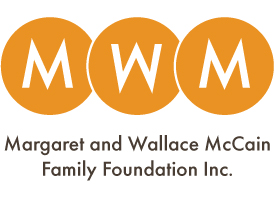
Honourable Margaret McCain concluding remarks, to the forum on Early Education and Child Care
Halifax, Nova Scotia. May 2
Thank you Minister Casey, Craig, Scott, and distinguished guests for your interest in a topic that can be a game changer for young children, their families and for all Nova Scotia.
Atlantic Canada faces many challenges but an area where it scores well is early education. That wasn’t always so. In the third Early Years Study, we worked with researchers from the University of Toronto to develop a scale that assessed the quality of early education and childcare in each province. In 2011, most of the Atlantic Provinces scored towards the bottom. By 2017, the Early Childhood Education Report shows the Atlantic Provinces in all the top spots.
The improvement is a credit to the efforts of governments working if partnership with the early years sector. It reflects their willingness to experiment, and to heed the evidence about what it takes to build quality, accessible early education and care programs.
Craig’s analysis draws on international and made-in-Canada studies documenting the wide benefits of early education. What you may not be aware of is the made-in-Nova Scotia research that underpins the government’s decision to take pre-primary for four-year-olds, province-wide.
Over the past three years pre-primary has been tested in eight Early Years Centres, one in each of the former school boards. The purpose was to answer the reasonable questions parents would raise: Is pre-primary necessary? Are schools ready for such small children? Isn’t four too young to sit at a desk all day?
We learned that in pre-primary there are no desks. Classrooms are organized around play and exploration centres and soft places to cuddle up with a book or take a nap.
Educators, with specialized training, work in teams with small numbers of children.
Our foundation is funding an independent evaluation of the eight test sites. Researchers from Nova Scotia universities are conducting the evaluation. They interviewed parents, who were amazed by how these rich settings fueled their children’s learning.
By participating in the pilot, schools learned how to better welcome young children and their families. Administrators and educators from these schools are now sharing their learnings with others. Grade Primary teachers report that the children who attended the pilot centres are entering their classes with greater confidence and skills, creating a more productive learning environment for teachers and students alike.
As Craig showed us, for early education to produce its positive outcomes, children must attend for long enough, and enough children must attend. This is the public education advantage. It is for all children, regardless of their parents’ ability to pay.
Pre-primary isn’t a replacement for a loving and stimulating home, but it is an important complement. There are the academic paybacks, but many experts believe the enduring benefits are derived from what children learn from each other -- how to be patient, to share, to consider the feelings of others, to listen and contribute. Skills they will need for school and for life.
For the more than one-in-three children in the province who begin school with gaps in their vocabulary and self-confidence, pre-primary can be a game changer; helping to develop the cognitive and social skills that will allow them to adapt more successfully to school.
Parents will come to different conclusions as to whether pre-primary is right for their child. Some will withhold their children entirely and that’s fine. Pre-primary is a voluntary program. Some will enroll their children for the educational boosts; others for the social benefits and some parents will look at it as way to save on childcare.
Regardless of parents’ motivations, all Nova Scotia will prosper from this essential investment in their youngest citizens.
Unexpected payoffs are already evident. Applications are coming in from Nova Scotia-trained educators who had moved away for work. The opportunity to practice their profession in pre-primary is their ticket back home.
By improving educational outcomes, reducing illiteracy and poverty and making the province a place where young families want to stay, Nova Scotia will feel the ripples of its decision to open its schools to four year olds today, and for generations to come.
Thank you.
- Access Craig Alexander's presentation here
